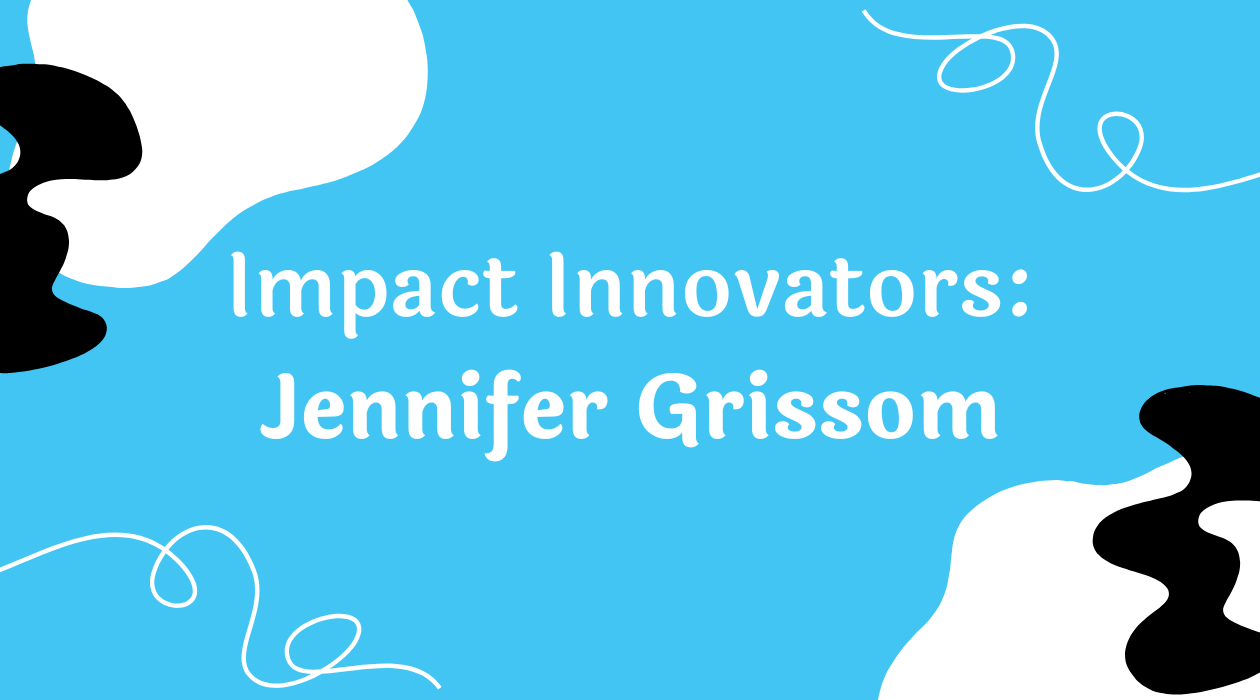From intern to Director of Programs, Angela Alvarez has walked nearly every step of the nonprofit...

Jennifer Grissom on Leading with Layers and Listening
What happens when a new Executive Director steps into a long-standing organization—and decides it’s time for a name change?
Rebranding with Purpose—and Patience
When Jennifer Grissom became Executive Director of what was then called Sustainable Economic Enterprises of Los Angeles, she quickly realized the name didn’t reflect the heart of the work. The organization operated eight farmers markets across LA, brought nutrition education to underserved communities, and supported small business vendors—but the name didn’t say any of that.
So, she led a rebrand. Today, the organization is called Food Access LA.
“It’s like an onion,” Jennifer shared. “There are layers to what we do—and we wanted a name that reflected that.”
But changing the name of an established organization isn’t just a branding exercise—it’s a leadership challenge. Jennifer had to learn her board’s communication styles, pace the process for her team, and earn buy-in across stakeholders.
“People learn at their own pace,” she said. “You have to meet them where they are, give space to absorb change, and trust that clarity will come.”
Learning the Landscape, Then Leading It
As a new ED, Jennifer approached the role with humility and intention. “I didn’t come in assuming I knew everything,” she said. “I asked questions. I listened. I trusted the staff. I had a lot to learn. I realized early on how important it is to allow for quality time with staff so that everyone can participate in the organization in the way that works best for them.”
That trust has shaped how the team operates. Food Access LA has three regional managers overseeing markets, a nutrition education team delivering on-the-ground programming, an online, wholesale and CSA produce delivery program called eat!, and an urban agriculture initiative that builds independent community growing spaces. At the time, they also ran a small business accelerator to help vendors navigate permitting, set up shop, and eventually scale beyond the markets.
The org is still very much program-forward, but under Jennifer’s leadership, there’s a growing focus on infrastructure, fundraising strategy, and impact tracking.
Measuring Impact Without Burning Out
Like many lean teams, grants drive most of the budget. Some farmers' markets generate revenue, but others operate at a deficit—so the pressure to demonstrate value is constant.
To meet that demand, the team uses a patchwork of systems: Excel, vendor input forms, volunteer data entry, and GiveButter for newsletters, donations, and event management.
“Everything is very ad hoc,” Jennifer said. “We track market counts, class attendance, surveys—but pulling it all together is a lift.”
What’s missing is centralization. From CRM needs to event sign-ups and donor engagement, Jennifer sees opportunities to streamline workflows—but time, funding, and capacity are tight.
“There’s never enough money or time,” she admitted. “But shared tools and collaborative systems make a huge difference.”
Balancing Mission with Market Mindsets
Jennifer knows Food Access LA is a mission-driven organization. But running markets means navigating business realities, too.
“There’s tension,” she said. “Some things make money, some don’t. It’s hard to balance both. And it’s hard to explain that to staff without putting too much stress on them.”
She leans on Agile project management principles—prioritizing, cutting time-sucks, and finishing what they start. It’s a mindset shift that’s helped her communicate timelines and strategy without sacrificing compassion.
And when it gets overwhelming, Jennifer grounds herself through exercise, family, and a growing board of directors who she’s learning to lean on more.
Professional Development: The Gap That Hurts Most
When asked what the nonprofit sector is missing, Jennifer didn’t hesitate.
“We need more support for professional development,” she said. “We can’t afford it, but we need it more than anyone.”
From manager coaching to grant reporting basics, Jennifer sees a hunger across the sector for the kinds of skills that make the whole machine run smoother—but that are often overlooked in favor of program work.
She also believes in peer collaboration—nonprofits sharing services, local companies sponsoring markets, and partners helping amplify each other’s efforts.
“Even just showing up at a market, sharing our posts, or getting to know our staff goes a long way,” she added.
A Quiet Call to Action
Jennifer carries the weight of the organization, but she does it with clarity and care.
“I try to be open with staff without burdening them but I’ve learned that my team is strong and eager to help.” she said. “This work is heavy, but the heart has to be in it.”
And in her case—it is. She’s not just building systems or rewriting org charts. She’s helping Food Access LA grow into a name that not only reflects what they do, but how they do it: with layers, learning, and a lot of love.
Want more stories like this?
The Impact Innovators series features real nonprofit leaders sharing what works, what doesn't, and what’s next. No fluff. Just honest stories for people building a better world. Subscribe or share to support this growing conversation.
- Read our latest blog post "Aaron Valencia on Vocational Empowerment, Mental Health, and Building Belonging" here.
- Want to hear more about our work? Subscribe to our newsletter here!




